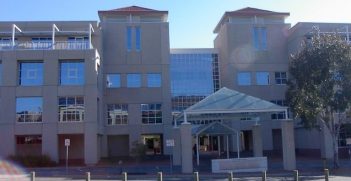A Letter to Australia’s Next Ambassador to South Korea

On 16 December, it was announced that Catherine Raper would be the next Australian Ambassador to the Republic of Korea. If the tasks of an ambassador could be simplified into representation, negotiation, reporting, and the consular function – and sound advice offered in 900 words – I respectfully offer my views.
Representing Australia in South Korea will be the greatest hurdle. The position attracts numerous stock phrases regurgitated by junior officers in the Department of Foreign Affairs and Trade (DFAT). The Australia-Korea relationship is “underpinned by shared values, a common strategic outlook, complementary economies, and close people-to-people links,” and South Korea is Australia’s “fourth-largest trading partner and third-largest export market.” These phrases are inserted into every speech, press release, and presentation on Australia’s relationship with South Korea. With the two countries celebrating 60 years of diplomatic relations in 2021, Raper is sure to have more of this patter placed in her hands. It should be thrown away. These expressions alone don’t work. Anecdotes denoting personal connections or admiration for South Korea go much further.
For many Australians, the country’s bilateral relationship with South Korea is hunky dory – it’s all reverence and gratuity for Australia’s Korean War sacrifice, trade complementarity, shared sentiments on the US alliance and North Korea’s denuclearisation, middle power this and that, and MIKTA (Mexico, Indonesia, South Korea, Turkey and Australia). These views are sustained in both the DFAT stock phrases, and South Korea’s foreign policy “gatekeepers” – the cosmopolitan, often overseas-educated, English-speaking foreign policy and political elites who interact with visiting academics and government officers.
Behind these stock phrases lies the very real fact that Australia is not actually recognised as a significant or serious partner by the majority of South Korea’s foreign policy and political elite. There’s scant media reporting, few books (most about experiences living or travelling), and a limited number of blogs and social media sources on Australia. Beyond a small number of influence multipliers in the field of sports diplomacy, as well as expat television and online personalities, Australia to most South Koreans is, at best, little more than kangaroos and the clichéd “mine, beach, and place to learn English.”
Ingrained in the foreign policy psyche of South Korean diplomats is an export-led growth fixation, and the image of Australia as a country whose policy simply mirrors US policy. Australia is viewed as a less significant export market and a less-than-independent foreign policy actor. An entire generation of South Korean diplomats now heading into senior management positions hold less regard for Australia as a bilateral partner – to the extent that in the Ministry of Foreign Affairs (MOFA), Australia is covered by a junior officer alongside Afghanistan and New Zealand.
Most importantly, there’s nowhere for future public servants or foreign policy thinkers to even learn about Australia. There are currently no Australian studies courses, and no corporate or government-supported Australian studies centers. Germany has its Goethe Institute, France the Alliance Française, UK the British Council, and ASEAN the ASEAN-Korea Centre. In China and Japan, Australia has corporate and/or government-sponsored Australian studies centers, which raise the profile of Australia in local media and in local foreign policy and political circles. In South Korea, Australia literally has the “one man and his dog” equivalent – a poorly and intermittently funded Australian Studies Centre hosted on a Facebook page.
This is Australia’s largest Korea problem. Addressing it through the establishment of a fully funded Australian Studies Centre could multiply Australian influence, raise important issues in the media, strengthen appreciation of Australia’s role, and would ultimately enhance the representation of Australia in South Korea over the long term.
Negotiation will also not be easy, but there are ample resources. While representation lays the foundations to facilitate negotiation, it is equally important to secure an understanding of how partners negotiate, their institutional characteristics, and their diplomatic style. For all the faith that diplomacy is universal, there is a uniqueness to it in South Korea that deserves attention.
Reporting will ultimately be Raper’s most important task as ambassador. South Korea is changing very rapidly – and a lot of this change flies under the radar. While mainstream US and US-influenced Australian analysis tends to focus on North Korea, nuclear weapons, and ballistic missiles, there are changes underway in South Korea that have the potential to transform the entire region. Debates once on the fringe, such as abandoning the US alliance, acceding to China’s dominance, declaring a position of neutrality, and securing an independent nuclear weapons capacity are now mainstream. As I often reiterate to interlocutors, given current trajectories, strategic change on the Korean Peninsula will not come from North Korea, but from South Korea.
Lastly, consular affairs – the often neglected, but most easily politicised diplomatic task. With the relatively small number of Australians and the relative stability of life in South Korea, one could imagine consular affairs to be less of an issue. Indeed it is, except for the sometimes befuddling administrative mix-ups with local agencies and the ever-present preparation for disaster – both natural and North Korean.
With all the advice provided to incoming ambassadors, my two cents may not count as much. Classic diplomat-scholars from Machiavelli to Nicholson wrote epistles to departing ambassadors. To close, I borrow from one of them. In the seventeenth century, Abraham de Wicquefort noted an ambassador requires knowledge, skill, prudence, and the “tincture of a comedian.” To survive and thrive in South Korea, the last may prove most important.
Jeffrey Robertson is an Associate Professor of Diplomacy at Yonsei University in South Korea. He provides regular commentary and analysis on Korean Peninsula affairs at https://junotane.substack.com.
This article is published under a Creative Commons License and may be republished with attribution.





